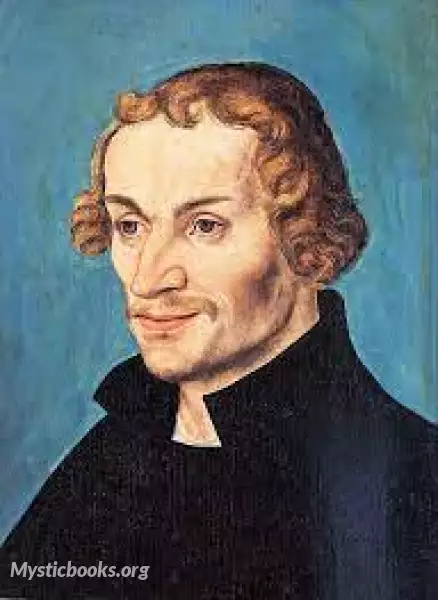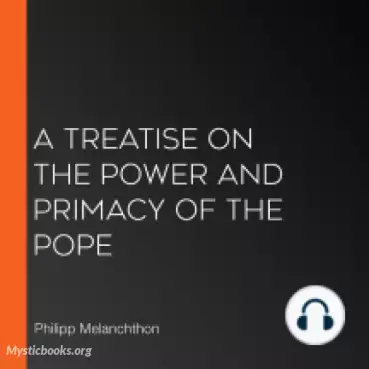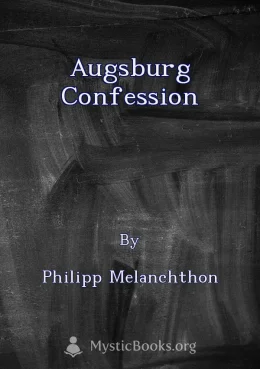
Timeline
Title
Country/Nationality
Philipp Melanchthon
Philip Melanchthon was a German Lutheran reformer, collaborator with Martin Luther, the first systematic theologian of the Protestant Reformation, intellectual leader of the Lutheran Reformation, and an influential designer of educational systems. He stands next to Luther and John Calvin as a reformer, theologian, and moulder of Protestantism.
Melanchthon along with Luther denounced what they believed was the exaggerated cult of the saints, asserted justification by faith, and denounced what they considered to be the coercion of the conscience in the sacrament of penance (confession and absolution), which they believed could not offer certainty of salvation. Both rejected the doctrine of transubstantiation, i.e. that the bread and wine of the eucharist are converted by the Holy Spirit into the flesh and blood of Christ; however, they affirmed that Christ's body and blood are present with the elements of bread and wine in the sacrament of the Lord's Supper. This Lutheran view of sacramental union contrasts with the understanding of the Roman Catholic Church that the bread and wine cease to be bread and wine at their consecration (while retaining the appearances of both). Melanchthon made his distinction between law and gospel the central formula for Lutheran evangelical insight. By the "law", he meant God's requirements both in Old and New Testament; the "gospel" meant the free gift of grace through faith in Jesus Christ.
He was born Philipp Schwartzerdt on 16 February 1497, at Bretten where his father Georg Schwarzerdt (1459-1508) was armorer to Philip, Count Palatine of the Rhine. The mother was Barbara Reuter (1476/77–1529). His birthplace, along with almost the whole city of Bretten, was burned in 1689 by French troops during the War of the Palatinate Succession. The town's Melanchthonhaus was built on its site in 1897.
In 1507 he was sent to the Latin school at Pforzheim, where the rector, Georg Simler of Wimpfen, introduced him to the Latin and Greek poets and to Aristotle. He was influenced by his great-uncle Johann Reuchlin, a Renaissance humanist; it was Reuchlin who suggested Philipp follow a custom common among humanists of the time and change his surname from "Schwartzerdt" (literally "black earth"), into the Greek equivalent "Melanchthon".
Philipp was only eleven when in 1508 both his grandfather (17 October) and father (27 October) died within eleven days. He and a brother were brought to Pforzheim to live with his maternal grandmother, Elizabeth Reuter, sister of Reuchlin.
The next year he entered the University of Heidelberg, where he studied philosophy, rhetoric, and astronomy/astrology, and became known as a scholar of Greek. Denied the master's degree in 1512 on the grounds of his youth, he went to Tübingen, where he continued humanistic studies but also worked on jurisprudence, mathematics, and medicine. While there he was also taught the technical aspects of astrology by Johannes Stöffler.
After gaining a master's degree in 1516 he began to study theology. Under the influence of Reuchlin, Erasmus, and others, he became convinced that true Christianity was something different from the scholastic theology as taught at the university. He became a conventor (repentant) in the contubernium and instructed younger scholars. He also lectured on oratory, on Virgil and on Livy.
His first publications were a number of poems in a collection edited by Jakob Wimpfeling (c. 1511), the preface to Reuchlin's Epistolae clarorum virorum (1514), an edition of Terence (1516), and a Greek grammar (1518).
Only a few days before his death, he had written a note which gave his reasons for not fearing death. On the left of the note were the words, "You will be delivered from sins, and be freed from the acrimony and fury of theologians"; on the right, "You will go to the light, see God, look upon his Son, learn those wonderful mysteries which you have not been able to understand in this life." The immediate cause of death was a severe cold which he had contracted on a journey to Leipzig in March 1560, followed by a fever that consumed his strength. His body had already been weakened by many sufferings. He was pronounced dead on 19 April 1560.
In Melanchthon's last moments, he continued to worry over the desolate condition of the church. He strengthened himself in almost uninterrupted praying and in listening to passages of Scripture. The words of John 1:11-12 were especially significant to him. "His own received him not; but as many as received him, to them gave he power to become the sons of God." When Caspar Peucer, his son-in-law, asked him if he wanted anything, he replied, "Nothing but heaven." His body was buried beside Luther's in the Schloßkirche in Wittenberg.
He is commemorated in the Calendar of Saints of the Lutheran Church–Missouri Synod on 16 February, his birthday, and in the calendar of the Evangelical Lutheran Church in America on 25 June, the date of the presentation of the Augsburg Confession.
Books by Philipp Melanchthon

A Treatise on the Power and Primacy of the Pope
The Treatise on the Power and Primacy of the Pope (1537) (Latin, Tractatus de Potestate et Primatu Papae), The Tractate for short, is the seventh Lutheran credal document of the Book of Concord. Philip Melanchthon, its author, completed it on Februar...

The Defense of the Augsburg Confession
The Apology of the Augsburg Confession was written by Philipp Melanchthon during and after the 1530 Diet of Augsburg as a response to the Pontifical Confutation of the Augsburg Confession, Charles V's commissioned official Roman Catholic response to...

Augsburg Confession
The Augsburg Confession was the first and most fundamental Confession of the Lutheran Church. It was composed for a public reading at the Diet of Augsburg on June 25, 1530. Although written by Melanchthon, it was presented as the official answer of t...